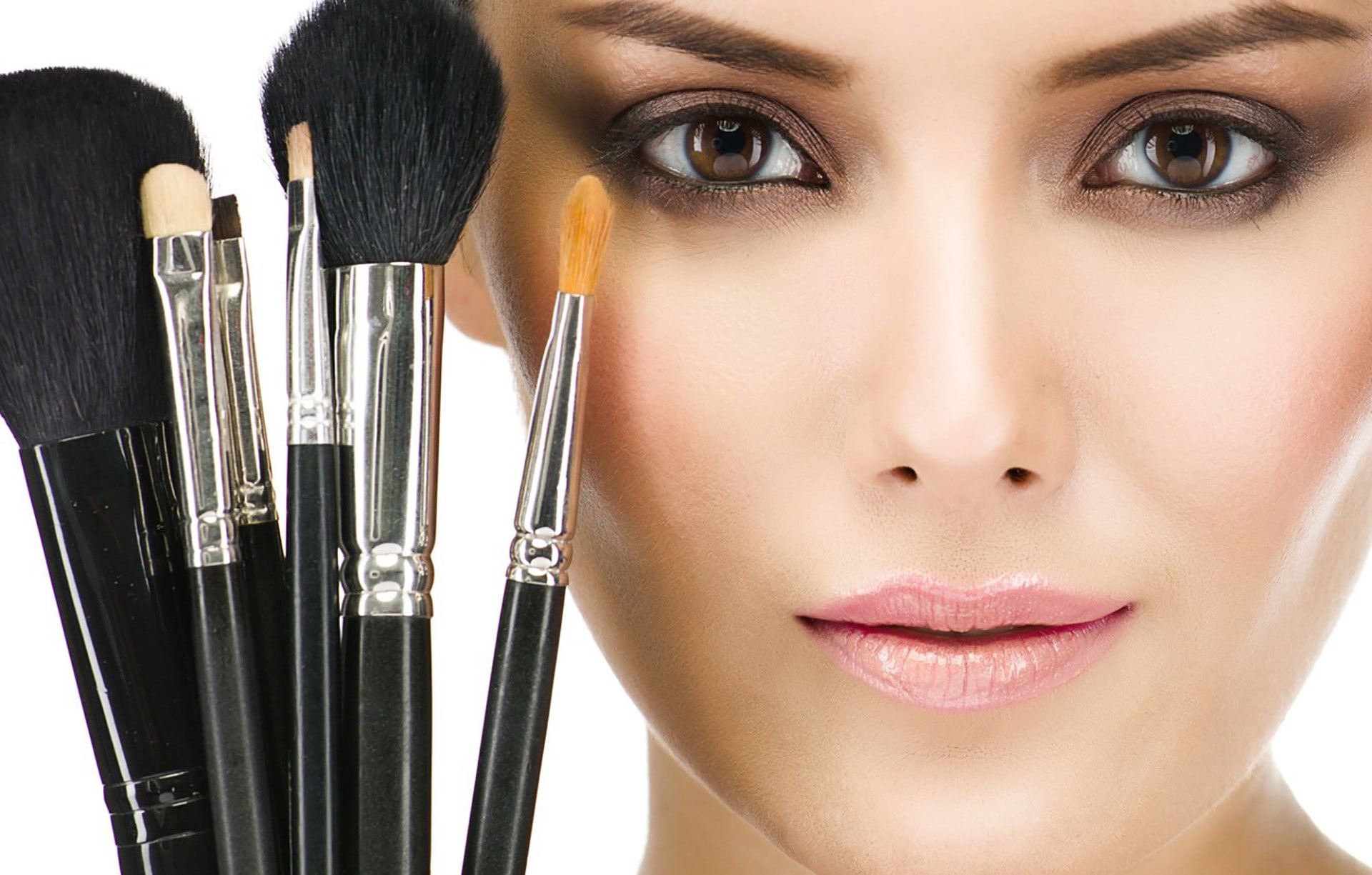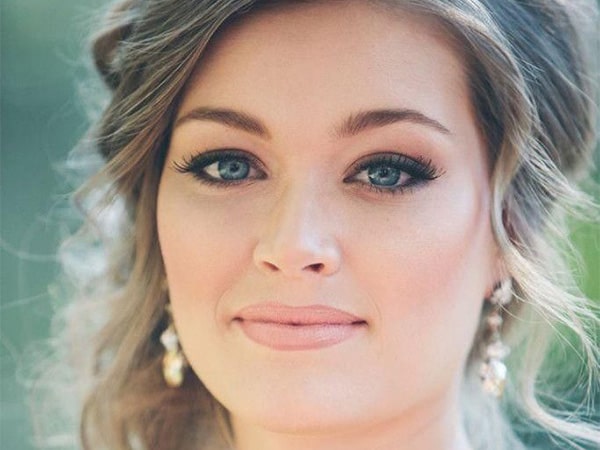
Make-up Artist
Welcome to my website and I am so glad you are taking interest of my work. My Name is Eneli and I am originally from Estonia. I have been Freelancing since 2010 in Orange County, Ca . I am Professionally trained and educated to use a proper application and technique by Make-up Artist Donna Mee, Empire Academy of Makeup and also licensed Medical Aestethician at Beauty Academy.
I am trained to do Corrective Beauty, Bridal, Print and Runway Make-up. All different styles of Make-up have different techniques that help enhance women’s beauty and have wonderful end results. There is nothing better than see a transformation of someone.
All my products I use are photo friendly and animal cruelty free.
Services

The science of sunscreen
If you've ever searched online for information about sunscreen, what you found may have made you feel less than sunny about slathering on these lotions and creams. Sunscreen is designed to protect your skin from the sun's damaging rays, but some of the claims made about it suggest it could do more harm than good. Assertions include everything from statements that sunscreen is ineffective to warnings that it's outright dangerous. Some writers even go as far as to state that sunscreen may cause skin cancer, thanks to a purported harmful cocktail of toxic ingredients. That's enough to darken your day. But are these statements true? We asked Dr. Jennifer Lin, an assistant professor of dermatology at Harvard Medical School and co-director of the Melanoma Risk and Prevention Clinic at Brigham and Women's Hospital, to help us separate fact from fiction. Below are her thoughts on what the science really says about sunscreen and whether it's a friend or foe to your skin. Q. Are there certain chemicals in sunscreen that people should avoid? I know some groups recommend avoiding certain ingredients. A. There are two types of sunscreens: Physical blockers reflect ultraviolet rays from the sun and contain one of two active ingredients, zinc oxide or titanium dioxide. Chemical blockers contain chemicals that absorb the sun's ultraviolet rays. In the United States these typically include aminobenzoic acid, avobenzone, octisalate, octocrylene, and oxybenzone. Oxybenzone has received the worst press because of concerns that it may act as what is known as a hormone disrupter. A hormone disruptor is a chemical that has the ability to cross cell membranes and may interfere with your body's natural hormone production. However, there has been no conclusive evidence that oxybenzone is harmful to humans. Organizations that have raised concerns about oxybenzone typically cite studies done in rats, where the rats were actually fed oxybenzone. It would take an individual 277 years of sunscreen use to achieve the equivalent systemic dose that produced effects in these rat studies, according to a 2017 study in the Journal of the American Academy of Dermatology. Oxybenzone is also known to cause allergic reactions in some people, although this is not common. Even if you avoid sunscreens with oxybenzone, you may encounter it in other products, including plastic, hairspray, and nail polish. At this point, we are not recommending our patients avoid sunscreens with oxybenzone, and if people choose to do so, they should be aware that the chemical exists in many other common products of daily use. Q. Is there evidence that sunscreen actually causes skin cancer? A. No. These conclusions come incorrectly from studies where individuals who used sunscreen had a higher risk of skin cancer, including melanoma. This false association was made because the individuals who used sunscreen were the same ones who were traveling to sunnier climates and sunbathing. In other words, it was the high amounts of sun exposure, not the sunscreen, that elevated their risk of skin cancer. Q. Some claim that sunscreen doesn't prevent the three main types of skin cancer. Is this true? A. No, there are excellent studies that sunscreen protects against all three of the most common skin cancers: squamous cell carcinoma, basal cell carcinoma, and melanoma. The degree of protection that sunscreen provides is directly related to the degree to which ultraviolet radiation is associated with the formation of the skin cancer. For instance, in prospective studies of sunscreen, the incidence of squamous cell carcinoma is reduced the most—as much as 40% over four years. Q. One online article claims that sunscreen is actually poisoning people. Is this true? A. I don't think there is any evidence that sunscreen is poisoning us. Q. Are the nanoparticles that are used in sunscreens with titanium dioxide and zinc oxide harmful? A. Manufacturers use nanoparticles in the physical sun blockers I mentioned above. Nanoparticles are made using a process called micronizing that breaks up larger particles. This makes the sunscreens easier to apply and allows them to disappear into the skin, in contrast to the greasy, white sunblocks of the past. I think that these physical blockers are much easier to use now that they are frequently micronized. Nanoparticles have not been shown to penetrate beyond the level of the skin and migrate into the bloodstream, which means that they are unlikely to create health risks. Q. Does everyone need to use sunscreen? I've heard some people say that they don't need to wear it because they have darker skin that tans well. A. We recommend sunscreen for skin cancer prevention, including melanoma prevention, which has been demonstrated in cohort studies as well as prospective randomized trials. Given that darker-skinned patients have a very low risk of skin cancer, using sunscreen for skin cancer prevention is not necessary. However, people looking to ward off the aging effects from sun would still benefit from sun-protective habits, which include sunscreen, sun-protective clothing, and sun avoidance.

Beauty Myths
Wash your face often if your skin is oily.
We are all born with normal skin; we create oily skin. While washing your face with soap or other foaming cleansers does remove dirt and oil, it also strips away moisure. Because our bodies cannot produce water, we produce oil to make up for it, therefore the oily skin type that we so desperately try to avoid.
Toner Tightens your pores.
Your pores are not like a window that we can open and close. Toner is meant to remove excess cleansers that cannot be removed with water alone, particularly the invisible film that foaming cleansers leave behind which can cause blackheads and rob our skin of a healthy glow.
Apply ChapStick when you have chapped lips.
ChapSticks are formulated to prevent lips to get chapped. It is good to use it before you are exposed to sun, wind, etc. Once your lips are chapped, it can not improve them. For that purpose you need a lip balm. Lip balm should not contain non-penetrating ingredients like wax, mineral oil or petroleum.
Cream cleanser is for old ladies.
Cream cleanser is for people who want to slow down the aging process. By applying to completely dry skin and massaging it without water or even damp hands it will do much deeper cleansing, softening the skin without stripping out the water from the skin like foaming cleansers can. Dehydration is the main cause of loss of elasticity.
Foundation color should be tested on the back of the wrist.
To select the best foundation color for you, determine your undertone based on the color of your neck. Test colors in that tone along your jaw line.
Loose powder is not necessary.
Loose powder should be applied over foundation to set makeup. Most pressed powders are pressed with oil, our skin will break and shine faster if foundation is set with it. Women who apply pressed powder all day to remove shine applying some oil to their face and each time they touch up. Compact powders were invented to be less messy to carry in a purse.

Make-Up title Three
Lorem ipsum dolor sit amet, consectetur adipiscing elit. Ut elit tellus, luctus nec ullamcorper mattis, pulvinar dapibus leo.
I’m a testimonial ONE. Click to edit me and add text that says something nice about you and your services. Let your customers review you and tell their friends how great you are.
I’m a testimonial TWO. Click to edit me and add text that says something nice about you and your services. Let your customers review you and tell their friends how great you are.
I’m a testimonial THREE. Click to edit me and add text that says something nice about you and your services. Let your customers review you and tell their friends how great you are.
Portfolio
Contact Us
Contact Info
- Lorem ipsum dolor sit amet, consectetur adipisicing elit. Pariatur, aspernatur, velit. Adipisci, animi, molestiae, neque voluptatum non voluptas atque aperiam.
- Address:PO Box 6462, Laguna Niguel, CA 92607
- Phone:714-881-0705
- Email:info@enelivoltein.comOpens in your application
